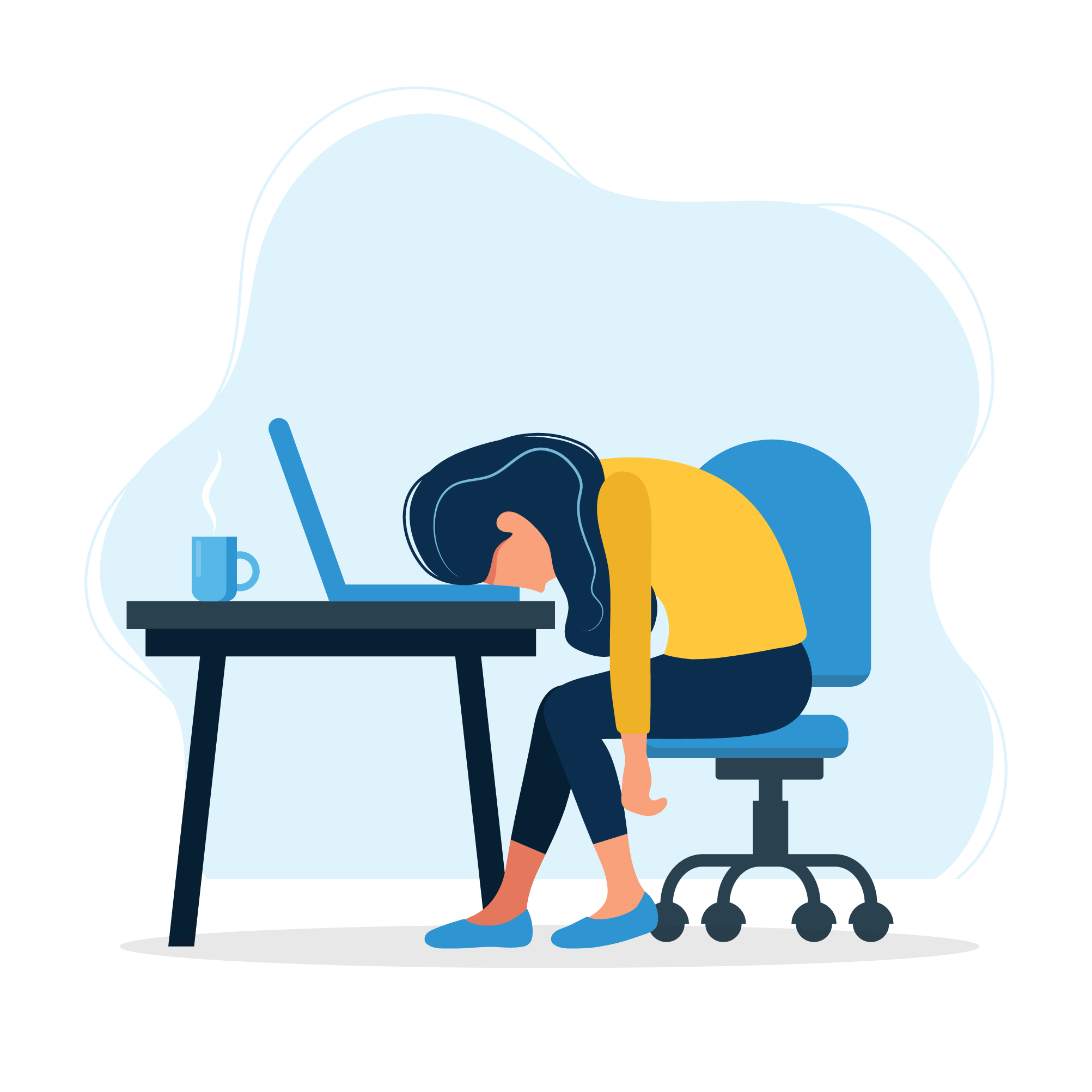Medically supported leaves. What, when, why and how
12 November 2021

The issue
We will all experience health challenges at some point or at several points during our working career, whether they be physical, emotional or mental health related. In the past, dealing with an illness often meant “taking a leave” from the workplace. However, struggling at work does not necessarily mean you need to “go off of work”. In fact, studies suggest that there are numerous benefits to the social support, routine and structure associated with the workplace which can ultimately enhance resiliency. There are numerous options that can be examined; having a conversation with your manager or supervisor to explore the options is beneficial in order to offer the appropriate level of support and the best possible outcome for recovery.
None of us is immune to the unprecedented levels of stress and anxiety with the pandemic, academic and administrative restructuring, budget cuts and the economic downturn. We all navigate these experiences differently and need to find the right restorative support. One of the common misconceptions is that stress alone is a medical diagnosis. Stress itself is not a medical diagnosis and as such “stress leave” is not a supported leave. However, the university has a number of resources to offer support to those who are struggling as a result of the multiple stressors we are faced with. For example, the Well-being through Change or Getting through the Pandemic sites both offer resources
Prolonged and/or cumulative stress can create or contribute to a debilitating illness. In cases such as these, a medical leave may be appropriate. The university’s goal is to offer supports and services to help you proactively address stress as it is critical to prevent future health issues. Prolonged periods of stress can also place us at a higher risk of developing chronic health concerns such as cardiac problems, substance abuse, conflicts, infections, injury, back pain, mental illness and cancer. ¹Developing skills to manage your stress can prevent larger issues down the road and will help increase your resiliency.
The responsibilities
Managing stress is a fine line for many of us. We can go from feeling in control to out of control quite quickly. Determining the difference between experiencing normal reactions to stress, challenges and uncertainty in the workplace and needing an illness leave requires both introspection and a conversation with your physician. Further, it is important to discuss the challenges you face with your supervisor/manager to determine how the worksite can best assist you in managing the issues you face. It is not necessary to discuss your medical diagnosis or treatment with your supervisor – they just need to understand what duties are being impacted by your condition. This serves to start a dialogue and allows both parties to consider options and begin problem-solving.
When medically necessary, going off of work due to an injury or illness is an important benefit to have access to. General illness leave is not an entitlement, objective medical is required in order to have a supported leave. The purpose of a leave is to address an injury or illness with a full return to work. Medical documentation is vetted by the university’s provider, Homewood Health.
There is an expectation that staff will seek treatment and engage in rehabilitation as appropriate during an illness/injury leave. Using recovery guidelines for a medical condition, Homewood Health will work with the staff member and their doctor/specialist to determine when an early and safe return may be initiated. This approach recognizes that performing suitable work duties when medically safe to do so is part of an effective rehabilitation program and is beneficial in leading to the eventual resumption of normal activity. This approach is supported by the Canadian Medical Association as they note “prolonged absence from one’s normal roles, including absence from the workplace, is detrimental to a person’s mental, physical and social well-being. A safe and timely return to work benefits the patient/employee and his or her family by enhancing recovery and reducing disability.”
With proper medical treatment and support, the staff member will recover and resume normal life activity.
The tools
Employees
University of Alberta Employee and Family Assistance Program - counseling and other supportive services.
E-Courses - register with the university’s EFAP and gain access to self-paced, self-directed e-learning opportunities of stress, resilience, workplace change, mood and more.
Psychological Health and Safety - staff and faculty page which contains information, resources and an e-learning opportunity.
Wellbeing Through Change - access resources to help faculty and staff maintain their wellbeing through ongoing change.
Facing Facts - read about the university’s campaign to address mental health/illness stigma in the workplace.
Managers
University of Alberta Employee and Family Assistance Program - counseling and other supportive services.
Workplace Advice Line - knowing how or when to address concerns in the workplace can be daunting. The university’s EFAP can support leaders on initiating these discussions with empathy and compassion.
Guide for Assisting a Colleague in Distress - helps leaders determine how best to support someone in distress.
Duty to Accommodate Policy
Creating Psychologically Safe Workplaces - information and resources.
Facing Facts - read about the university’s campaign to address mental health/illness stigma in the workplace with leaders specific information sheets.
Our next article will be on modified work versus accommodations.
¹Work Safe for Life, FAQ: Psychologically Healthy Workplaces